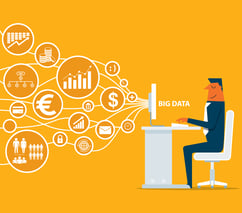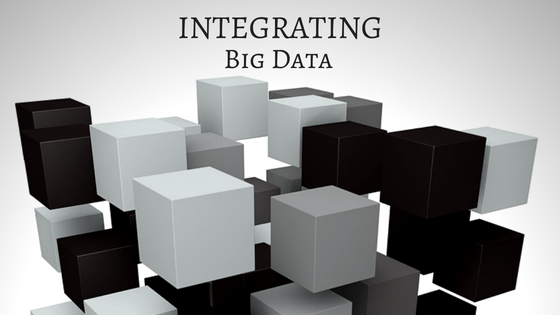6 examples of how Big Data can help small businesses
Big data is data sets that are too large or complicated for traditional data processing software to deal with. Amongst other things, big data can be...
Big data analytics is the use of tools and processes to derive insights from large volumes of data. This data has either one of the three characteristics large volume, high velocity or extreme variety. Big data analytics aims at deriving correlations and conclusions from data that were previously incomprehensible by traditional tools like spreadsheets. Big data analytics uses tools like Hadoop, SAS, R etc which are more powerful than previously used rows and columns. Big data analytics uses these tools to derive conclusions from both organized and unorganized data to provide insights that were previously beyond our reach.
With advancement in technologies, the data available to the companies is growing at a tremendous rate. This data offers a host of opportunities to the companies in terms of strategic planning and implementation. With the help of real time big data processing, companies can use data to enhance decision making. Big data analytics can help companies use data to influence not only future decisions but present decisions as well.
Good Read: 10 Big Data Visualization Tools

Today, the estimated amount of data is equivalent to 1,200 exabytes, which is equal to twelve hundred billion gigabytes. That information is vast enough to fill five separate piles of CDs that would all reach to the moon. With the rise in the amount of data, there is also a rise in the storage capacity. According to Simplicable, the average hard drive capacity has increased from 10 GB in 2000 to 1TB in 2010.
With such immense rise in data comes the possibilities of using it. Big data analytics allows for the use of this data to bring out relationships that are not reachable with traditional analysis techniques. The amount of possibilities and increase in analytical capabilities are accounting for this rise in big data analytics.
 1. Cost Reduction:
1. Cost Reduction:Big data helps in providing business intelligence that can reduce costs and improve the efficiency of operations. Processes like quality assurance and testing can involve many complications particularly in industries like biopharmaceuticals and nanotechnologies. Big data analytics can provide insights on the impact of different variables in the production process thus helping industries take better decisions.
Big data analytics can analyze past data to make predictions about the future. Thus businesses can not only make better present decisions but also prepare for the future. This gives them a competitive edge and provides a more agile framework for decision making and risk handling.
Businesses can analyze past data about product launches and customer feedbacks to launch better products in future. Along with this, the real time market analysis allows business to understand shifts in demand and supplies of products and changes in consumers’ behavior which helps in customer oriented marketing. The increased demand for personalized services can also be empowered by analyzing consumer needs, preferences and buying behaviors.
The biggest challenge in using big data analytics is to segment useful data from clusters. The data required for analysis is a combination of both organized and unorganized data which is very hard to comprehend. On top of this is the shortage of talented personnel who have the skills to make sense out of big data. From recruitment to training and from budgeting to strategizing, using big data analytics comes with as many challenges as possibilities.
Though there are many hurdles ahead of us, we are all determined to give this technology the chance it deserves. Big data in its full capacity is capable of creating a revolutionary change in the world something as big as the internet or maybe bigger. There are many cases of successful implementation of big data and the instances are likely to grow from hundreds to thousands in just a decade if not less.
Read more about Big Data:

Big data is data sets that are too large or complicated for traditional data processing software to deal with. Amongst other things, big data can be...

Big data is a voluminous data whether unstructured or in structured form, and due to its large volume as such it’s difficult to process.
